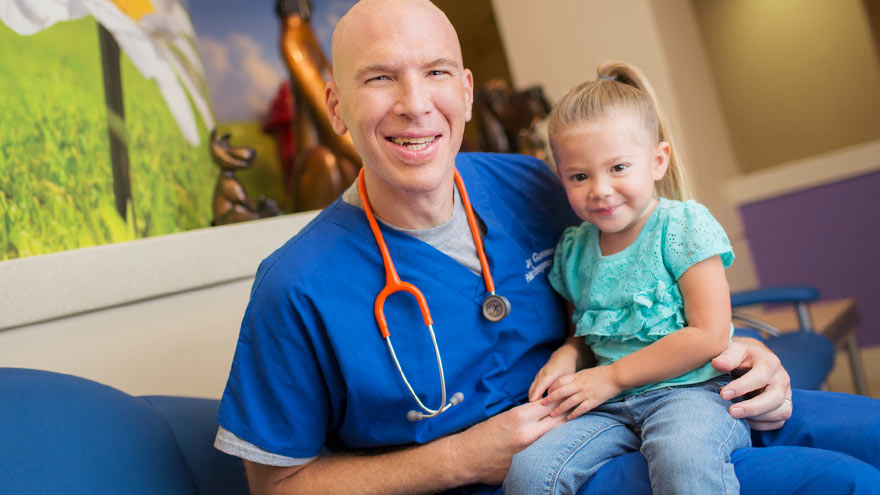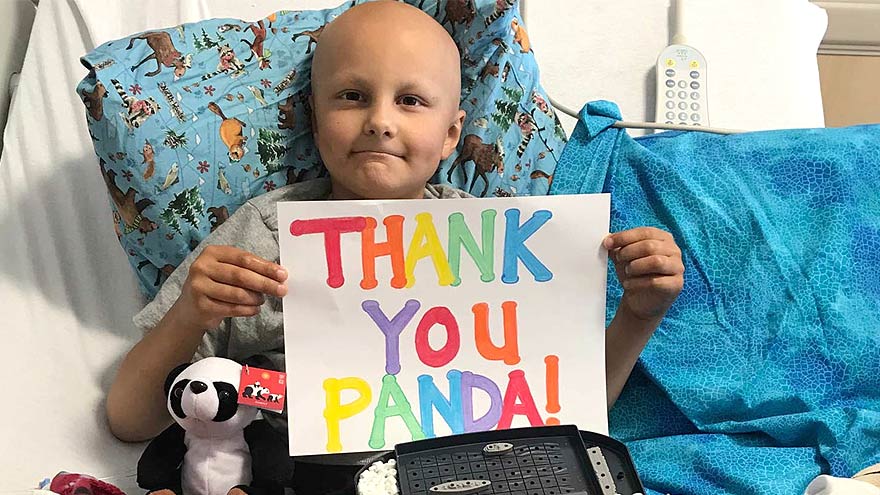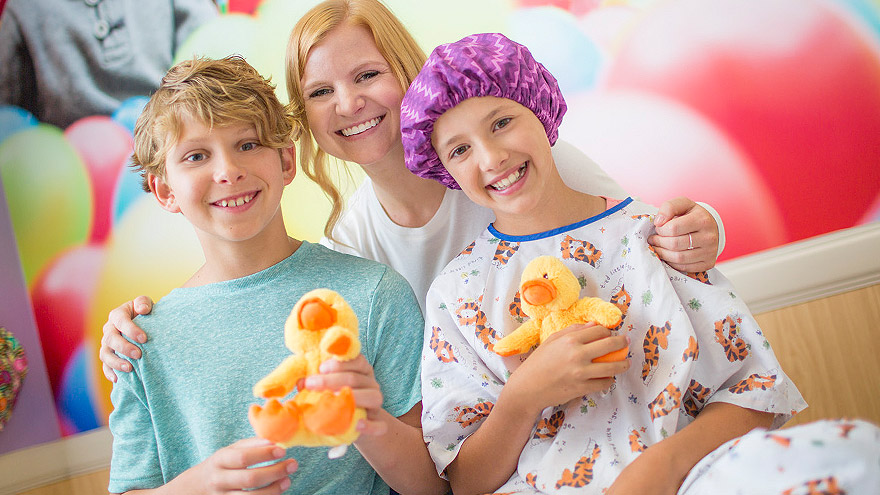Buscar
Results for 'family medicine'
Clear-
Vacuna contra el VPH: la prevención es la mejor medicina
With more than 3 million cases in the United States each year, human papillomavirus (HPV) is a common sexually transmitted disease and can lead to the risk of several cancer diagnoses. Fortunately, a vaccine can prevent more than 90% of HPV cancers when given at the recommended ages. We talked to Renown Pediatrician Vanessa Slots, M.D., to learn more about HPV and the importance of getting your child fully vaccinated. What is HPV? Talking about sexually transmitted infections can be uncomfortable, but learning how HPV is spread is important for prevention. HPVs are spread via skin-to-skin contact. According to the National Cancer Institute, there are low/medium-risk HPVs that can cause warts and cervical dysplasia (abnormal cells on the cervix), and there are high-risk HPVs that can cause various cancers. HPV is perhaps most known for causing cervical cancer. Other cancers related to HPV are anal, vaginal, vulvar, penile and oropharyngeal cancers. In fact, men are four times more likely than women to suffer from HPV-associated oropharyngeal (mouth and throat) cancer. HPV is so common that nearly all sexually active people will be exposed at some point in their lifetime, with around half of infections being a high-risk virus. Benefits of the HPV vaccine Immunizations are safe and effective and have successfully reduced the transmission of many deadly diseases. The CDC (Centers for Disease Control and Prevention) states the HPV vaccine protects against infections that can lead to HPV related cancers and abnormal cells that can lead to cancer (precancers), as well as genital warts. The recommended HPV vaccine schedule The American Cancer Society states that the HPV vaccine is most effective when two doses are given to girls and boys between the ages of 9 to 12. There should be at least 6 months between the first and second dose. “You might be asking why your child needs to get the HPV vaccine at this young age when they are not sexually active,” says Dr. Slots. “Research shows that people have a better immune response to the vaccine when younger than in their late teens and early 20s.” For teens and young adults ages 13 through 26 who have not been vaccinated, getting the HPV vaccine is still highly effective in preventing cancers and genital warts. CDC recommended HPV vaccination suggestions: 2-dose schedule for people who get their first dose before their 15th birthday. 3-dose schedule for people who get their first dose on or after their 15th birthday. “By following the recommended HPV vaccine schedule and getting your child the correct number of doses, this will ensure they have adequate protection against HPV associated diseases including cancer,” says Dr. Slots.
Read More About HPV Vaccine: Prevention Is the Best Medicine
-
Understanding and Managing Childhood Asthma
Dr. Shipra Singh, a Pediatric Pulmonologist, outlines the challenges of diagnosing asthma in children due to symptoms resembling other respiratory issues. It's particularly difficult to identify in infants and young children, who may not clearly exhibit breathing difficulties. Asthma, often confused with bronchitis, croup, or allergies, is a significant chronic illness causing school absenteeism, as per the CDC. Risk factors include prenatal smoking and family history of allergies or asthma. Infants and toddlers are more susceptible due to smaller airways and respiratory viruses, which can exacerbate conditions like colds and bronchitis. How can I tell if my child has asthma? Unfortunately small children are unable to describe their symptoms, making asthma difficult to diagnose. Your child may even be active, playing and smiling, although they are experiencing chest tightness or labored breathing. Observe your child and let the child’s doctor know if: Your child’s breathing behavior has changed (coughing, wheezing, rapid breathing) Your child’s breathing pattern changes (day vs. night, with rest or activity, inside vs. outside) You have a family history of asthma or allergies Your child’s breathing is triggered by any foods or allergies With your help, your child’s doctor can make the best diagnosis to determine if your child has asthma. A pediatric pulmonologist (lung specialist) or pediatric allergist may also have to be consulted for special testing. Tests may include lung function testing, allergy tests, blood tests and X-rays for an accurate diagnosis. What is the treatment for infants and toddlers? Young children can use many of the same medications as older children and adults, although the way they take them and the dosage will differ. A nebulizer (or breathing machine) creating a medicated mist for your child to breathe through a mask may be used. An inhaler with a small spacer tube connected to a mask is also common to help your child breath medication into their lungs. Either of these options are effective. Asthma in children is treated with both fast-acting and long-term medicines to open up airways quickly for easy breathing and also to lessen asthma symptoms over time. Communicate with your child’s medical providers to create a personalized asthma management plan for them. How can I manage my child’s asthma? Recognize your child’s breathing habits and be aware of worsening symptoms. Consult with your child’s doctor on a daily asthma action plan to recognize worsening symptoms and track medications. Here’s an example of an asthma action plan provided by the U.S. Department of Health and Human Services’ National Institutes of Health). Be consistent with the plan and talk to your doctor before changing it. Have an emergency plan in case of a serious asthma attack. Know where the closest ER is and know who can take care of your other children. Also know what the medical treatment coverage is under your insurance plan. Dr. Singh explains, "Discussing asthma with your child may be difficult. Some kids find the subject frightening or confusing. Others, especially the older kids, may resent the treatment and may not be interested in doing it. Talk to your doctor about advice to build an open and trusting relationship regarding your child's asthma care."
-
Llevando la atención pediátrica cerca de casa
As our community grows, so does the need for specialized care. Thanks to a generous gift, there’s a healthier future for families in the region as a $7.5 million gift to the Renown Health Foundation is helping keep care close to home. Being in the hospital is often a stressful experience, especially for a child and their caregivers. If you add the need to travel out-of-state for care into the mix, unnecessary anxiety and financial burdens can be placed on a family that is already worried about a sick child. With our quickly growing community and close to 100,000 children under the age of 18 in Washoe County alone, the need for local specialty care is needed. The William N. Pennington Foundation recognized this need and donated $7.5 million to the Renown Health Foundation – the largest gift the health system has received – to keep care close to home and establish the William N. Pennington Fund for Advanced Pediatric Care. Thanks to this gift, Renown Children’s Hospital has hired more than 15 pediatric specialists who provide care for children in our community. Below, we introduce you to three key specialized pediatricians in northern Nevada: Joseph A. Gassen, M.D. “Having pediatric specialists in the community is invaluable,” says Joseph A. Gassen, M.D., pediatric emergency medicine. “It allows families and patients to stay in Reno and not have to travel far distances to get quality care.” Gassen, the only doctor specializing in pediatric emergency medicine in the region, moved to Reno to provide care in the emergency room at Renown Children’s Hospital. “The hospital is dedicated to improving the care of children in northern Nevada, and I wanted to be a part of this amazing vision," Dr. Gassen says. I would not have been able to relocate to Reno without the support from the hospital and the William N. Pennington gift.” Working with children and their families are what Dr. Gassen finds most rewarding. "I get to provide care for a child, which in turn makes the parent feel better,” he says. “Essentially, I get to treat the whole family, even though I only directly care for the kids.” Colin Nguyen, M.D. Also among the first new specialists is Pediatric Neurologist Colin Nguyen, M.D., who has done extensive work with epilepsy and epilepsy surgery. “In any growing and expanding community, we need the multitude of social, financial, political and well-being services to sustain that growth and progress,” Dr. Nguyen says. “The ability to offer more breadth of medical services to our local population allows families to spend more time together and fulfill work obligations, without the need to travel long distances to obtain that specialized care.” Dr. Nguyen says he enjoys caring for children because they are honest in their emotions and reactions, as well as simple in their intentions. “It is the overall joy and unique sadness that comes in working with children, which drives many of us to continue our work -- I am no exception.” Jacob Zucker, M.D. The third pediatric specialist providing care thanks to the Pennington gift has close ties to northern Nevada. Jacob Zucker, M.D., pediatric hematologist-oncologist, was born and raised in Reno and attended medical school at the University of Nevada, Reno School of Medicine before moving to the Midwest for his residency and fellowship. Dr. Zucker feels fortunate to have been offered the opportunity to return home and give back to the community that has given so much to him. “I can say with absolute resolve that northern Nevada is an exceptional community to practice medicine in. The care offered here at home is top rate and the providers that live and practice here truly understand the purpose of community.” The addition of these three specialists and the future specialists that will be coming to our area will impact thousands of children and their families. “With a growing population, the vision of leadership at Renown, and with the generosity of the William N. Pennington Foundation, northern Nevada is in position for the first time to make local pediatric subspecialty care a reality and to keep our families at home in their community,” Dr. Zucker says.
-
Panda Cares Center of Hope at Renown Children's Hospital
When you have an ill child in the hospital, it is a stressful event. And Panda Express is helping local families support children who need special care. Their generous donation provides much-needed equipment, programs, and resources via the new Panda Cares Center of Hope, Renown Children’s Specialty Center. Their partnership directly benefits patients and their families! The ‘Panda Cares Center of Hope, Renown’s Children’s Specialty Center’ In fact, this new center provides care to not only children, but also comprehensive support to the entire family. Similarly, it creates an environment that reduces stress, promotes healing, and provides a superior patient and family experience. This facility upholds Panda Express’ mission, vision, and values and its four pillars: to directly help fund the emotional, mental, physical, and spiritual needs of children. This center, the first-ever in northern Nevada, will provide care for children who have chronic conditions. In particular, it offers ongoing treatment, health management, and specialty medical services, including: Nephrology Endocrinology Neurology Pulmonary Infectious Diseases Medical Genetics Adolescent Medicine How You Can Help! When you order from Panda Express, you can opt to round up your change, which will help support programs and services, such as the Center of Hope for Renown Children’s Hospital. Order Online A Partnership for Health & Education of Underserved Youth This partnership allows Renown Children’s Hospital to continue to strengthen regional services and increase Panda’s visibility within our growing community. Last year, 21,930 sick children received care from Renown Children’s Hospital. To date, Panda Express has raised $449,200 in financial support to assist us in providing health and education to every child, regardless of illness, injury, insurance, or ability to pay. Panda Express funds have already supported: Giraffe omni beds for the NICU Ultrasound machine for the Children’s ER Panda warmers and a hand held Accuvein machine Child Life Program to support sick patients and families Meeting room in the Children’s Specialty Center In kind donations, volunteer time and support of local events such as the University of Nevada Reno, Wolf Pack Dance Marathon
Read More About Panda Cares Center of Hope at Renown Children's Hospital
-
What Is the Role of a Child Life Specialist?
What is the role of the child life specialist? Here are common questions and answers about how these special individuals give both parents and kids peace of mind. Let’s face it: A hospital can be an intimidating place for just about anyone. But add in being a small human with very little worldly experience — aka a child — and it’s easy to imagine how overwhelming a hospital visit can be. Enter the role of the child life specialist. Liz Winkler, a child life specialist with Renown Children’s Hospital, explains how a Renown program puts young patients and their families at ease. What does a child life specialist do? Child life specialists help young patients develop ways to cope with the anxiety, fear and separation that often accompany the hospital experience. They give special consideration to each child’s family, culture and stage of development. As professionals trained to work with children in medical settings, specialists hold a bachelor’s or master’s degree in the areas of child life, child development and special education or recreational therapy. Our child life specialists are also professionally certified and affiliated with the national Child Life Council. Child life specialists also offer tours of Renown Children’s Hospital for families whose children are scheduled to have surgery. Child life supports children and families by: Helping children cope with anxiety, fear, separation and adjustment Making doctors, needles and tests a little less scary Providing art, music and pet therapy Organizing activities Addressing your concerns Telling you what to expect Creating a therapeutic and medical plan Offering a hand to hold What else is available at the Children’s Hospital that helps ease some of the stress of a hospital visit? Whether it’s seeing a pediatrician, getting a sports physical or looking for advice, our care is centered on supporting and nurturing patients and families at our many locations. We have kid-friendly environments to help ease some of the stress of a hospital visit. These include colorful exam rooms, kid-friendly waiting and common areas, and medical equipment designed especially for children. Our children’s ER is open 24 hours a day, seven days a week. So parents and caregivers have access to emergency care tailored to little ones — anytime, day or night. We have several pediatric specialists on the Renown team in areas including diabetes, emergency medicine, neurology, pulmonology, blood diseases and cancer. How can parents start to ease their children’s mind when they know a hospital visit is in the future? As with many things in life, good preparation can help kids feel less anxious about the experience and even get through recovery faster. It’s important to provide information at your child’s level of understanding, while correcting any misunderstandings, and helping to eliminate fears and feelings of guilt. If you’re anxious and nervous, your child may reflect these feelings and behaviors. So make sure you educate yourself, feel comfortable with the process, and get your questions answered.
Read More About What Is the Role of a Child Life Specialist?




